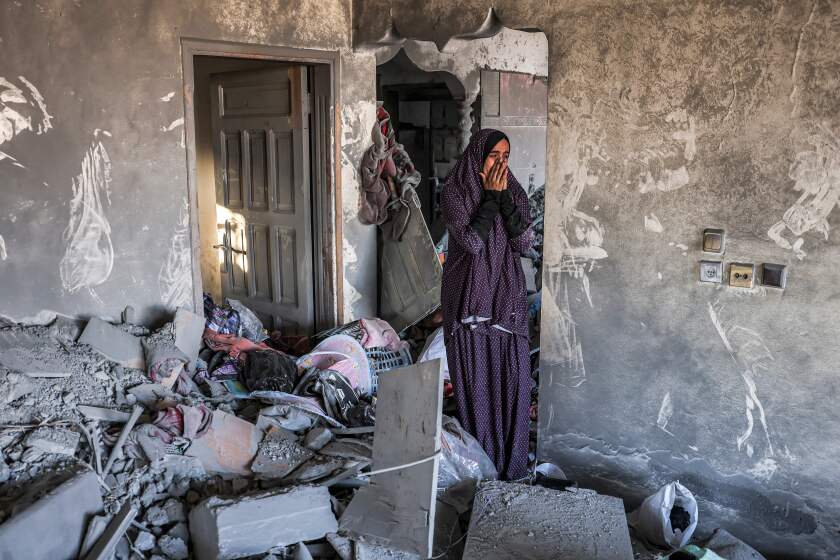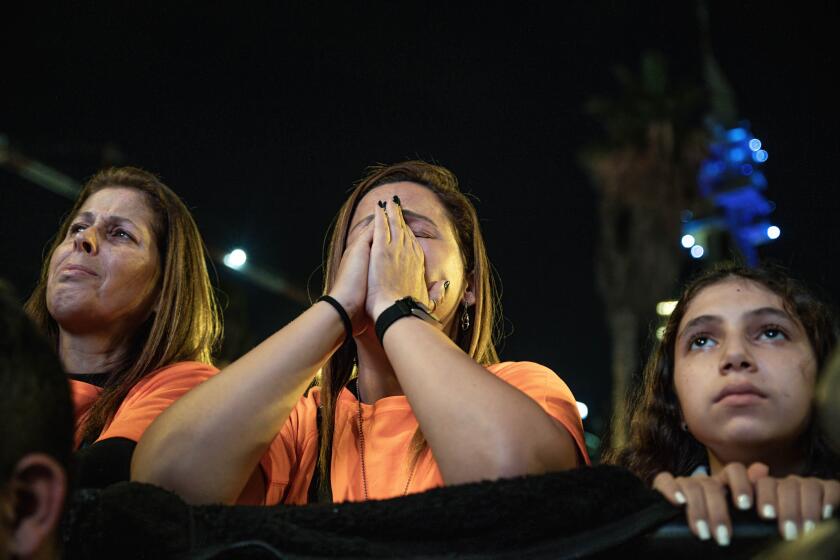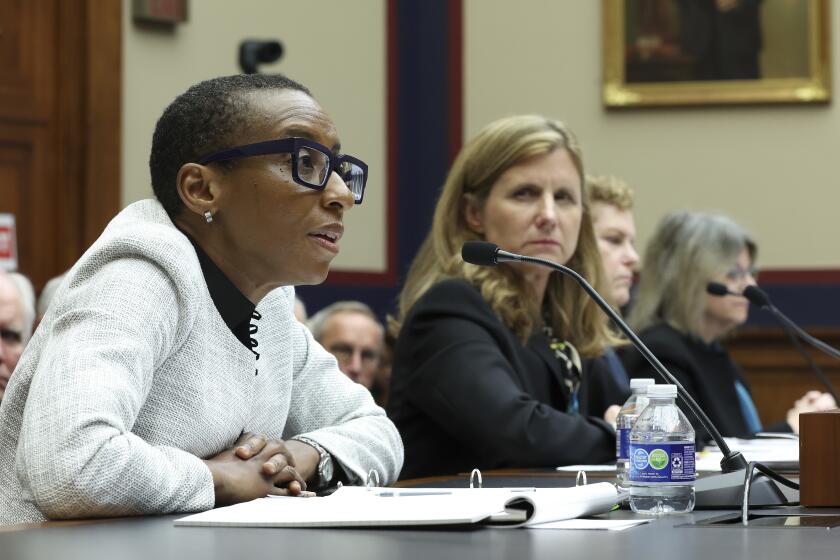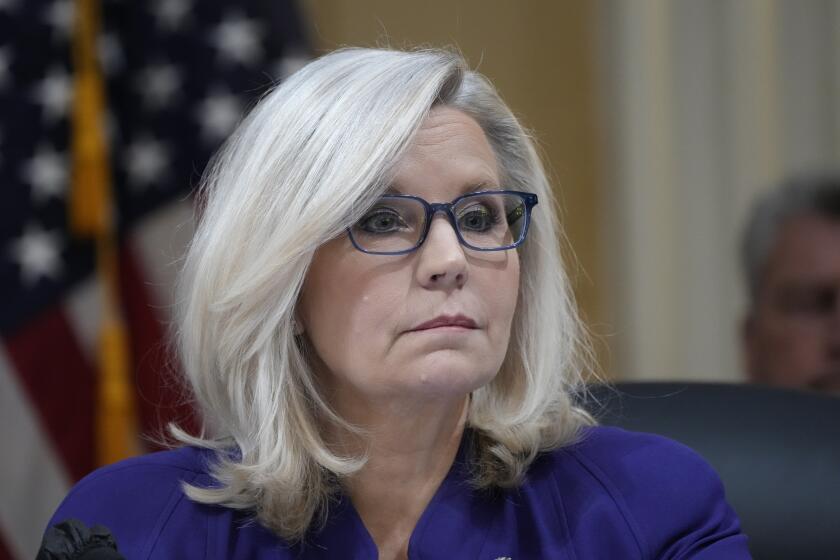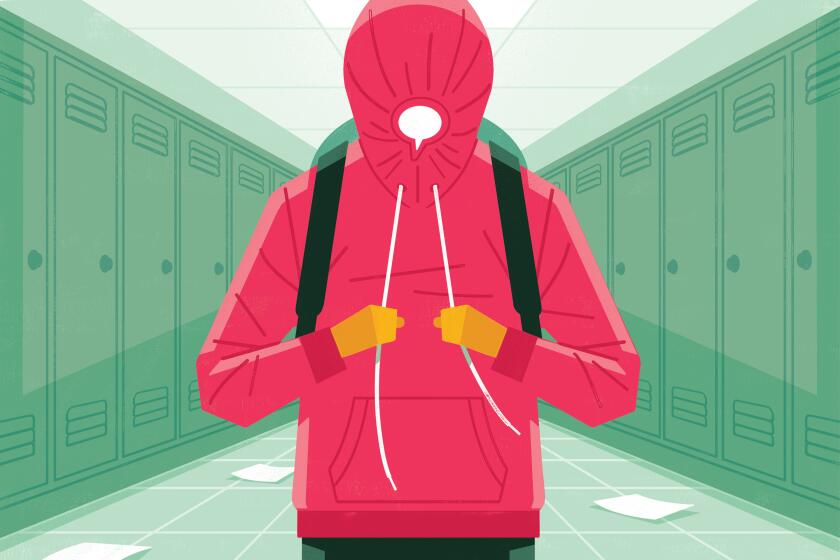Opinion: As a Gaza teen, I used to dream of college. Now I feel sentenced to death by Israel’s bombings
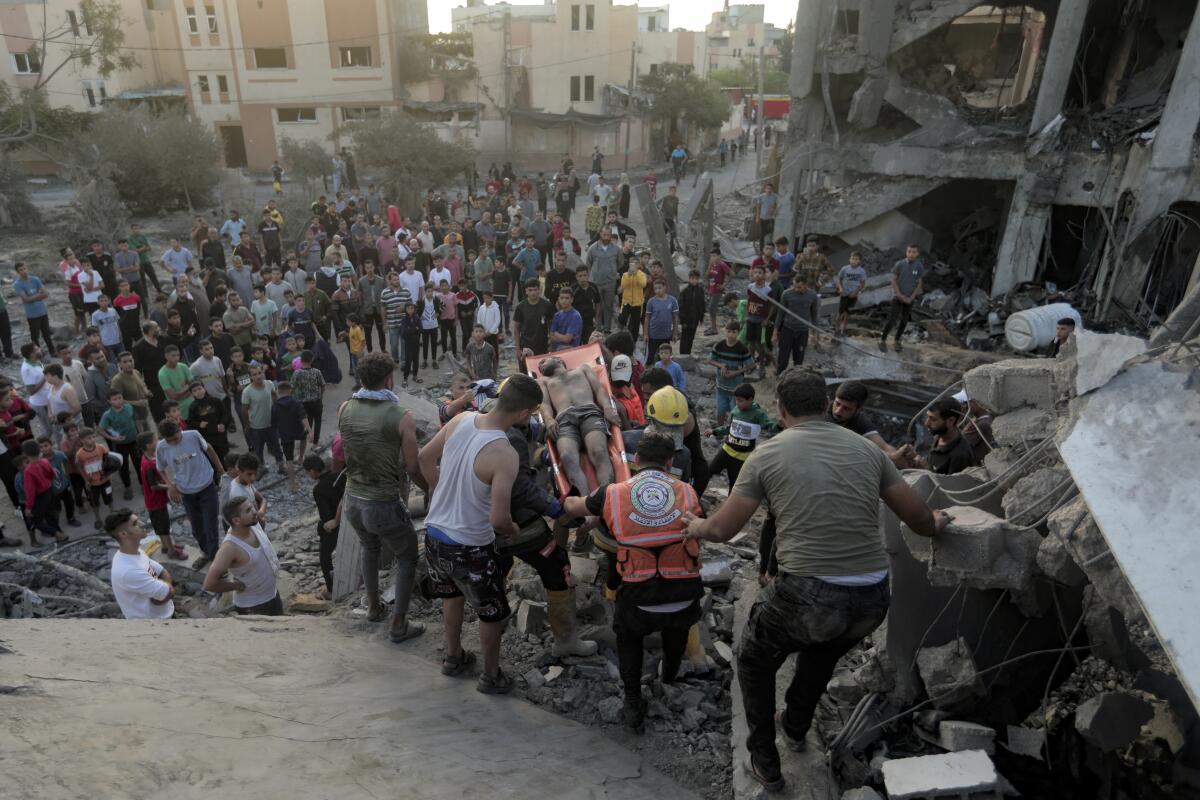
Until two months ago, my life as a 17-year-old in Gaza was marked by the predictable anxieties and aspirations of a student applying to university. I dreamt of crossing borders to pursue a better life — of landing on my feet at an American school and, eventually, of returning to serve my community as a doctor. Education was my blueprint for escaping this city of war.
Now as I huddle in a cramped, dimly lit room with 12 other women in Rafah, those dreams seem like fragments of another life. Our stomachs echo with hunger, and our throats burn with thirst. We exist in constant darkness, the world illuminated only by the flashes of missiles and the red glow of destruction.
As you read this, I urge you to pause — to hear the shrill sirens and the heart-stopping booms of bombs and feel the tremors that shake our jaws.
I have lived in Gaza for 17 years. But amid the ruins, I no longer recognize its streets. Where will I walk now?
Imagining possible futures beyond Israel’s Jewish supremacy is a political act for me, rooted in my people’s history.
My family was forced to leave our home when the war broke out. I took only one bag — I wish it were large enough to carry my house, my cat, my memories. This week, when the Israeli army reached Khan Yunis, we had to flee for the fourth time.
Even before Oct. 7, children in Gaza were born with the burden of survival. We learned to walk on rubble, avoiding shrapnel like puddles. Still, this time is different. Looking around, I find myself in a space too small for dreams; there is only room for nightmares. Each morning, I awake from a few fleeting hours of sleep to news of another relative’s death.
The Israeli bombings are not only attacks on our city, but assaults on our humanity. They have destroyed our hospitals, schools and places of worship, including mosques and churches.
I am not a terrorist. I am a student, a sister, a daughter. My dreams are not a weapon; they are how I hope to rise above this conflict. Children in Gaza think not of conquest or destruction but of a life untouched by the tyrant of war. We dream of classrooms, not wreckage; of playgrounds, not bomb craters.
Global research on war, trauma and mental health shows there’s a risk of retribution and a cycle of violence. But support and interventions can help.
Our deaths should not be inevitable. Over the past weeks, my Instagram feed has been flooded with voices from around the globe uniting in an urgent plea for a cease-fire.
It is not enough to lament the loss of life. There must be an unyielding effort to protect it. To devalue a Palestinian life — to see it as less worthy of safety and dignity — is inhumane. Ceasing the bombardment is a moral obligation.
How are we, the children of Gaza, to embrace Israel, when every explosion that shatters the sky shapes our understanding of the world? Each bomb ravaging our streets sows deep within us seeds of fear, anger and mistrust — seeds that threaten to sprout and entangle our hearts for years to come. Even if we stay alive, what will become of our futures? Our innocence folds amid this onslaught, which we neither chose nor understand.
More than 15,000 people in Gaza, 70% of them women and children, have already been slaughtered. Thousands more lie unrecognizable under the rubble. Up to 1.8 million Palestinians have been displaced, myself included. We are not faceless statistics, but innocent human beings. History will look to us to measure the cost of moral weakness — the consequences of dismissing the sanctity of all human life.
In its two-tiered legal structure, strict movement controls and discriminatory land policies against Palestinians, the Israeli government has built a system that even some former Israeli officials describe as total apartheid.
In Gaza, age is a fallacy. It is the most dangerous place on Earth to be a child. Since October, I have lost more friends than has my 78-year-old grandmother. The anguish has become a companion of my existence. If I were your daughter, would you stand for it?
President Biden’s own life has been marked by profound loss — a deep, aching grief that I feel, too. So I wonder: Will he save us? Will he join the chorus demanding a cease-fire? Our lives hang in the balance, tethered to the hope that the world will recognize our humanity. This is not a call for political intervention but a plea for compassion. We do not ask for heroes. We ask for empathy.
Over the past two months, the stars have been obscured by smoke, but I know they are there. They live above Gaza’s smog, shining reminders of a world beyond war. I aspire to be among those stars — a beacon of hope in a sky darkened by violence.
I feel that I have been sentenced to death, but death no longer scares me. I only fear that when I die, my story will be forgotten.
We plead with Israel, the U.S. and the world: Please end the bombardment. Let the children of Gaza dream again.
Salma Hamad is a teenager in Gaza who still hopes to apply to British and American universities. With the help of Al Muntaha Tutoring, an online charity that educates young Arabs in English, she has been documenting her experiences of the war.
A cure for the common opinion
Get thought-provoking perspectives with our weekly newsletter.
You may occasionally receive promotional content from the Los Angeles Times.
